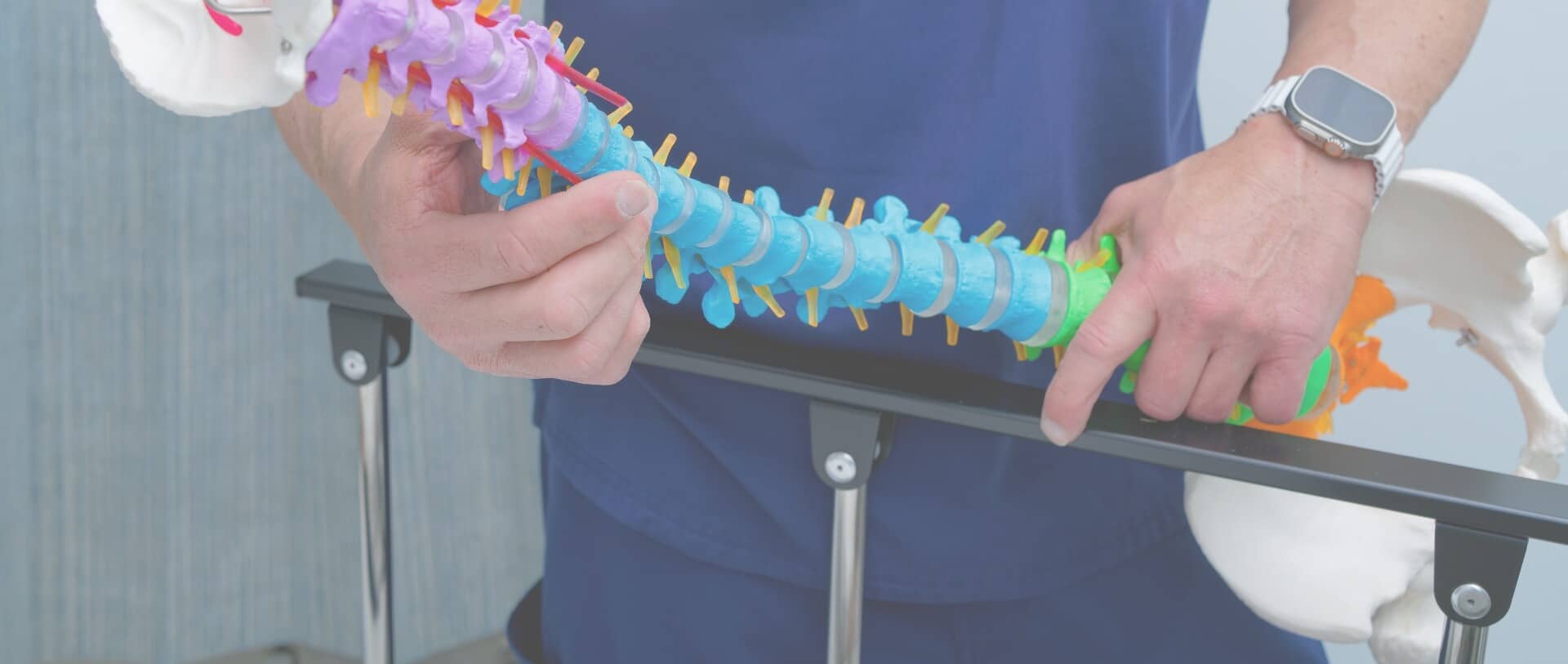
PROCEDURES
Discectomy
The discs between the bones in your spine serve as cushions, allowing for full flexibility when you move. When a disc ruptures, bulges, or herniates, it can compress a nerve exiting the spinal column, resulting in back pain and numbness or weakness in the extremities. Trust the knowledgeable spine specialists at Gottlieb Spine. They may suggest a discectomy or another cervical spine surgery to alleviate the spinal compression causing your symptoms. Contact us today to schedule a consultation.
What is a Discectomy?
A discectomy is a surgical procedure that involves removing all or part of an intervertebral disc. Intervertebral discs serve as shock absorbers in the spine, located between each pair of vertebrae to promote flexibility and reduce friction. When a disc is damaged, its soft contents can impinge on sensitive nerves, resulting in pain and loss of its beneficial effects.
Dr. Jamie Gottlieb uses two approaches to discectomy surgery:
- Anterior cervical discectomy, which is performed through an incision from the front of the neck
- Lateral discectomy, which is performed through an incision on the side of the neck
- Minimally invasive discectomy, where your surgeon will use special techniques to operate with less damage than open spine surgery
Normal Discs vs. Herniated Discs
The cervical spine consists of the bony vertebrae, discs, nerves and other structures. The vertebrae, which stack up to create your spinal column, surround and protect your spinal cord. The discs are located between each vertebra. Discs consist of a fibrous outer layer (annulus) surrounding a gelatinous center (nucleus). They allow motion between vertebrae, act as shock absorbers, and distribute the stress and strain placed on your spine.
When a disk weakens, the outer layer may not be able to hold the center of the disc in place and the disc may “bulge” which can irritate nerves. In advanced cases, it may rupture (herniate) through the annulus and pinch the spinal nerves. This can cause numbness, weakness, and/or pain which radiates down the arm into the hand or causes difficulty with fine motor movements.
If pressure on the spinal nerves continues, nerve damage can occur and cause either numbness or muscle weakness as well. Most patients with herniated discs do well with non-surgical treatment, however, a small percentage may require surgery.
What Conditions Does a Discectomy Treat?
Aside from a herniated disc, a discectomy may help treat any condition that requires the removal of disc material. This could include:
- Degenerative disc disease: Disc degeneration occurs over time, and can result in damaged discs
- Sciatica: If the disc is affecting the sciatic nerve, a discectomy can remove the material and release the associated pressure
- Stenosis: If the leaked disc material invades the spinal canal, a discectomy is done to remove it and release any pressure the material was putting on the surrounding nerves
Types of Discectomy Surgery
There are various types of discectomy surgeries available, each designed for a specific area of the spine.
- Thoracic discectomy, which is used to treat herniated discs in the mid-back
- Cervical discectomy, performed on patients experiencing pain in the neck and upper spine
- Anterior cervical discectomy fusion (ACDF) is a two-part surgery. After an anterior cervical discectomy, your surgeon may also perform cervical fusion surgery. The discectomy part of the ACDF procedure involves removing the damaged disc, and the fusion part of the surgery uses a bone graft to fuse the remaining vertebrae
ACDF Surgery or Discectomy: Which Surgery is Right for Me?
Both an ACDF and a discectomy have been proven to be effective in treating a range of neck and spine issues, but it is important to understand the differences between the two procedures. ACDF surgery, or anterior cervical discectomy fusion surgery, involves removing the damaged disc and filling the space with a bone graft to promote fusion.
A discectomy, on the other hand, focuses on removing only the problematic part of the disc. Dr. Gottlieb will work with you to determine which surgery is best suited for you, or if another type of cervical surgery would produce optimal results. Both options are safe and can provide long-term relief of your symptoms.

Top Quality Care at Gottlieb Spine
If you are experiencing neck or back pain and are interested in exploring treatment options, it’s worth considering the discectomy procedure or ACDF. If you’re curious about which procedure might be right for you, contacting Gottlieb Spine is a great place to start. Our knowledgeable surgeons can provide you with more information about spine surgery and help you determine the best course of action. Don’t let spine pain hold you back from optimal health – contact Gottlieb Spine today to schedule a consultation.
SCHEDULE A CONSULTATION